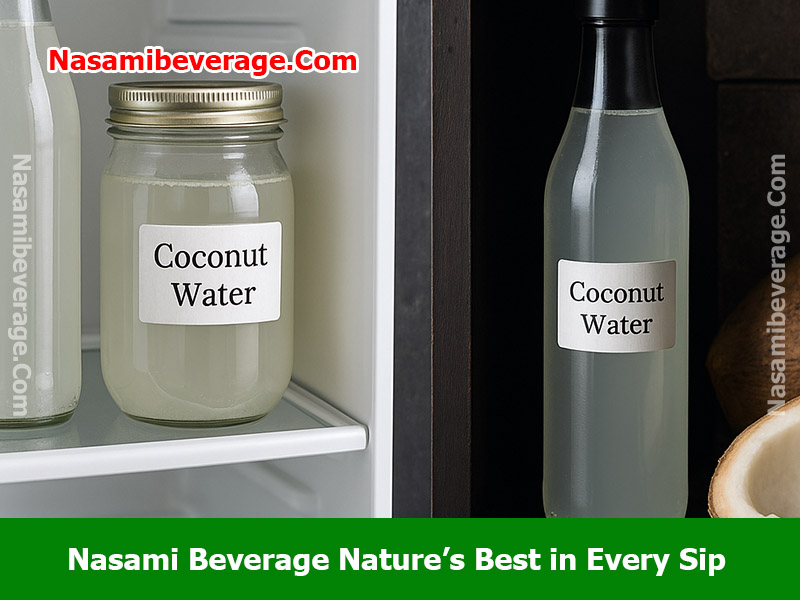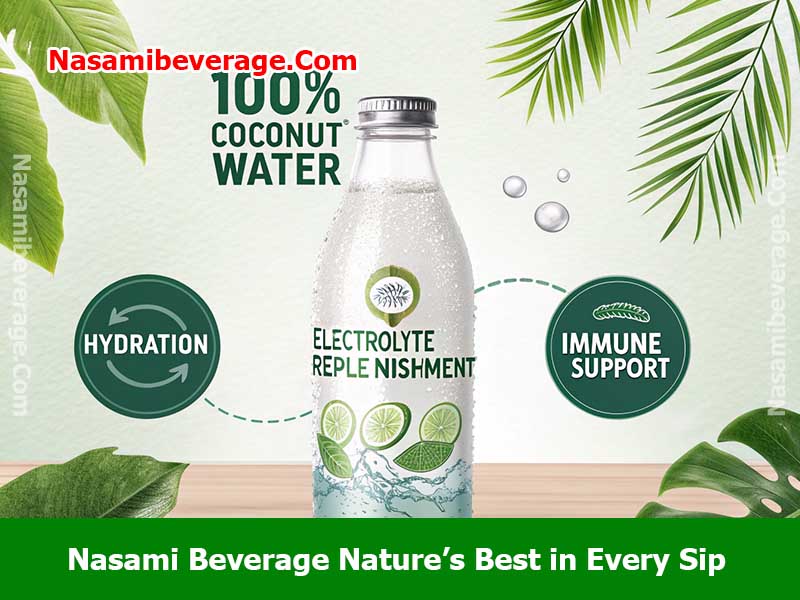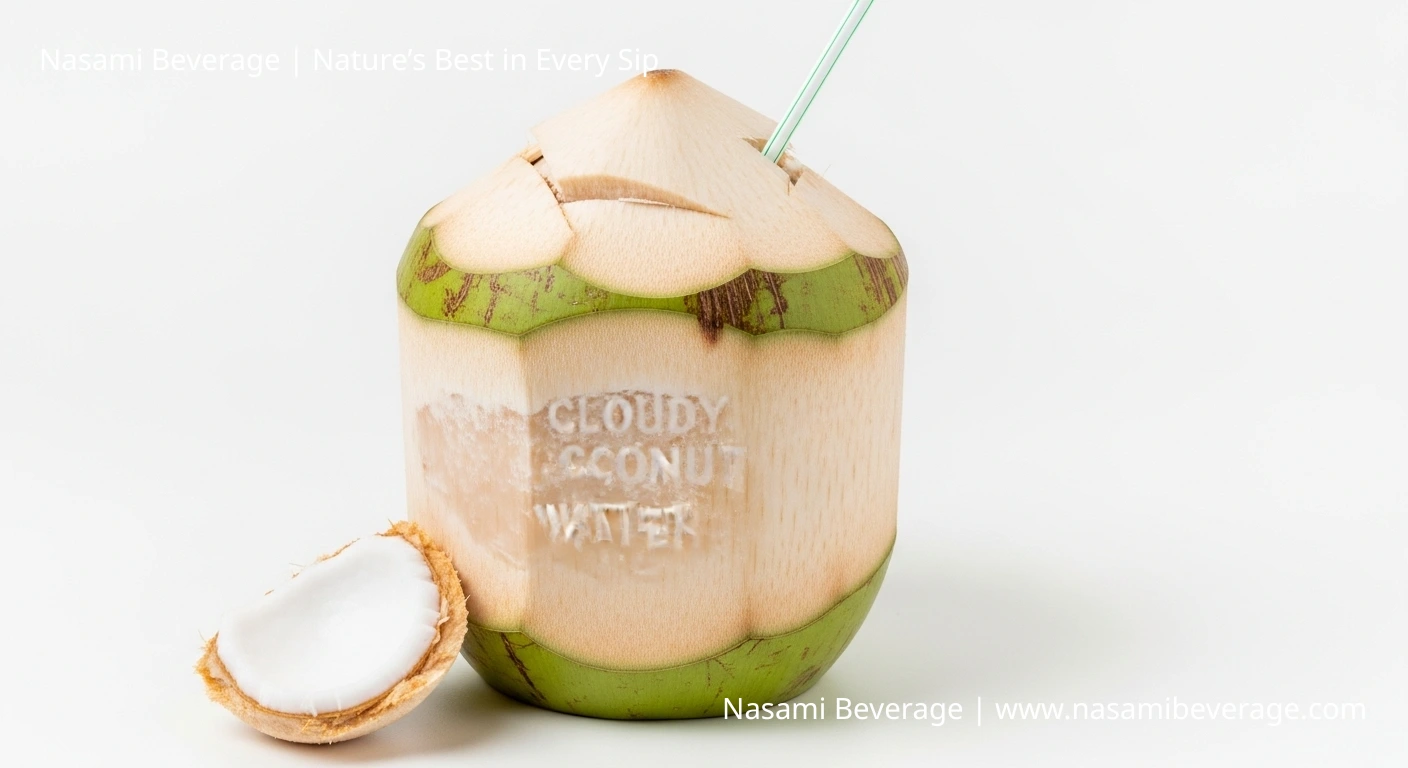How can I tell if coconut water has gone bad? Coconut water is a refreshing, nutrient-packed beverage loved by health enthusiasts worldwide. But how can you tell if coconut water has gone bad? Spoilage can affect its taste, safety, and benefits, making it essential to recognize the signs. This guide explores five clear indicators of spoiled coconut water, offers storage tips to maintain freshness, debunks common myths, and recommends trusted brands. Learn how to ensure every sip is safe and enjoyable while discovering practical ways to extend shelf life and avoid waste.
Why knowing if coconut water is bad matters
Coconut water delivers hydration and electrolytes, but consuming it past its prime can lead to unpleasant experiences or mild health risks.
Spoiled coconut water may cause digestive discomfort or simply taste off, diminishing its appeal. Recognizing spoilage helps you avoid waste, save money, and enjoy the full benefits of this natural drink.
With coconut water’s rising popularity among fitness buffs and casual drinkers, understanding its shelf life ensures you make informed choices, whether stocking up or sipping post-workout.
Health risks of spoiled coconut water
Drinking spoiled coconut water might lead to nausea, stomach upset, or bloating due to bacterial growth or fermentation. While severe illness is rare, consuming contaminated liquid can ruin your day.
Checking for spoilage protects your well-being and ensures you get the hydration and nutrients you expect from brands like Vita Coco or Harmless Harvest.

Benefits of identifying spoilage early
Spotting spoilage early prevents wasting a pricey bottle or carton. It also helps you maintain trust in coconut water as a go-to beverage.
By catching issues before consumption, you can replace spoiled products with fresh ones, keeping your diet on track. This knowledge empowers you to shop smarter and store better, maximizing value and flavor.
5 clear signs your coconut water has gone bad
Identifying spoiled coconut water is straightforward when you know what to look for. From changes in smell to visible mold, these five signs help you determine if your drink is past its prime.
Use these tips to avoid consuming anything less than fresh, ensuring every gulp is as refreshing as intended. For a deeper dive, explore how to know if coconut water is bad.
Unusual smell or odor
Fresh coconut water has a mild, nutty aroma. If it smells sour, fermented, or rancid, it’s likely spoiled. Trust your nose and take a cautious sniff before drinking.
A strong, unpleasant odor often indicates bacterial activity or improper storage, signaling it’s time to discard the liquid.
Cloudy or discolored appearance
Clear or slightly translucent liquid defines fresh coconut water. Spoiled versions often turn cloudy, yellow, or even pinkish. While some raw brands like Harmless Harvest may naturally develop a pink hue due to oxidation, unnatural cloudiness or off colors suggest spoilage.
Inspect the liquid in good lighting to confirm. Curious about what colour is coconut water typically looks like?
Off or fizzy taste
A quick sip can reveal spoilage if the coconut water tastes sour, bitter, or fizzy. Fresh coconut water offers a clean, slightly sweet flavor.
Fermentation can create a carbonated or vinegary taste, indicating it’s no longer safe. If other signs like smell or color are off, skip tasting and toss it.

Mold or particles in the liquid
Visible mold, floating debris, or unusual particles are red flags. These indicate contamination or advanced spoilage, making the coconut water unsafe to drink.
Check the bottle or carton carefully, especially near the opening. If you spot anything suspicious, dispose of it immediately to avoid health risks.
Expired or suspicious packaging
Expiration dates provide a reliable guide, but damaged packaging can accelerate spoilage. Bloated, leaking, or dented bottles or cartons suggest internal fermentation or contamination.
Even if unexpired, trust your instincts if the packaging looks compromised, as it may no longer protect the liquid inside. Learn more about whether coconut water can expire.
How to store coconut water to prevent spoilage
Proper storage extends coconut water’s shelf life, preserving its taste and nutrition. Whether unopened or freshly opened, following these guidelines keeps your beverage fresh longer.
Learn the best practices for both scenarios and pick up extra tips to maintain quality over time.
Proper storage for unopened coconut water
Keep unopened coconut water in a cool, dry place, away from direct sunlight or heat sources. A pantry or cupboard works well, ensuring a shelf life of six to twelve months for most brands like Zico or Taste Nirvana.
Check the expiration date regularly and rotate stock to use older products first.
Storing opened coconut water
Once opened, refrigerate coconut water in an airtight container to prevent bacterial growth. Consume it within two to three days for optimal freshness.
For longer storage, freeze it in a sealed container for up to two to three months. Thaw in the refrigerator and shake gently before drinking.

Tips for maintaining feshness
Minimize air exposure by pouring with clean utensils and sealing containers tightly. Avoid shaking bottles excessively, as this can promote fermentation.
Store coconut water away from strong-smelling foods in the fridge to prevent flavor absorption. These small steps ensure every bottle stays crisp and enjoyable.
Choosing high-quality coconut water brands
Not all coconut water is created equal. Selecting trusted brands ensures better taste, safety, and consistency. Companies like Vita Coco, Zico, Harmless Harvest, Taste Nirvana, and C2O prioritize quality, offering pure, nutrient-rich options.
Explore these brands to find your perfect match and enjoy coconut water at its best.
Why brand quality matters
High-quality brands use better sourcing and processing methods, reducing the risk of premature spoilage. They also provide clearer expiration dates and safer packaging.
Investing in reputable names guarantees a fresher product, whether you’re hydrating post-workout or adding it to smoothies.
Top brands to try
Vita Coco leads with its pure, electrolyte-packed formula, while Zico emphasizes sustainable sourcing. Harmless Harvest offers raw, organic coconut water for a premium taste.
Taste Nirvana delivers authentic flavor, and C2O focuses on eco-friendly packaging. Visit their sites or local stores to stock up on these trusted options.
Common myths about coconut water spoilage
Misconceptions about coconut water can lead to confusion or waste. Clearing up these myths helps you make informed decisions about storage, safety, and consumption. Separate fact from fiction to enjoy your beverage with confidence.
Myth: All coconut water lasts forever
Unopened coconut water has a finite shelf life, typically six to twelve months. Even sealed products can spoil if stored improperly or past their expiration. Always check dates and signs of spoilage, regardless of how long you’ve had the bottle.
Myth: Pink coconut water is always bad
Some raw coconut water, like Harmless Harvest, turns pink due to natural oxidation, which is safe and normal. However, pink hues paired with cloudiness or bad smells indicate spoilage.
Know your brand’s characteristics to distinguish natural changes from true spoilage.
Myth: Spoiled coconut water is always harmful
While spoiled coconut water tastes unpleasant, small amounts are unlikely to cause serious harm. Mild fermentation may lead to digestive discomfort, but severe illness is rare.
Still, it’s best to avoid drinking anything that shows clear signs of spoilage to stay safe.
FAQs about coconut water spoilage
How long does unopened coconut water last?
Unopened coconut water lasts six to twelve months past its printed expiration date when stored in a cool, dry place. Brands like C2O or Vita Coco provide reliable dates. Always inspect for spoilage signs like odd smells or damaged packaging before opening.
Can you freeze coconut water to extend is shelf life?
Freezing coconut water in an airtight container extends its life up to two to three months. Thaw it in the fridge and shake well before drinking. This method works well for bulk purchases or preserving opened bottles you can’t finish quickly.
What happens if you drink spoiled coconut water?
Consuming spoiled coconut water may cause nausea, stomach upset, or bloating. While serious illness is uncommon, it’s best to avoid drinking anything with off smells, tastes, or appearances.
If severe symptoms occur, consult a healthcare professional promptly.
Does coconut water go bad faster after opening?
Opened coconut water spoils faster, lasting only two to three days in the fridge. Store it in a sealed container to slow bacterial growth. Freezing is an option for longer storage, ensuring you don’t waste any of your favorite brands.
Knowing how to tell if coconut water has gone bad empowers you to enjoy this hydrating drink safely. By checking for unusual smells, cloudy appearances, off tastes, mold, or damaged packaging, you can avoid spoilage and savor every sip.
Store it properly, choose trusted brands like Vita Coco or Harmless Harvest, and debunk myths to make the most of your coconut water.
For premium quality and reliable freshness, explore Nasami Beverage today and keep your hydration game strong with top-rated products.



